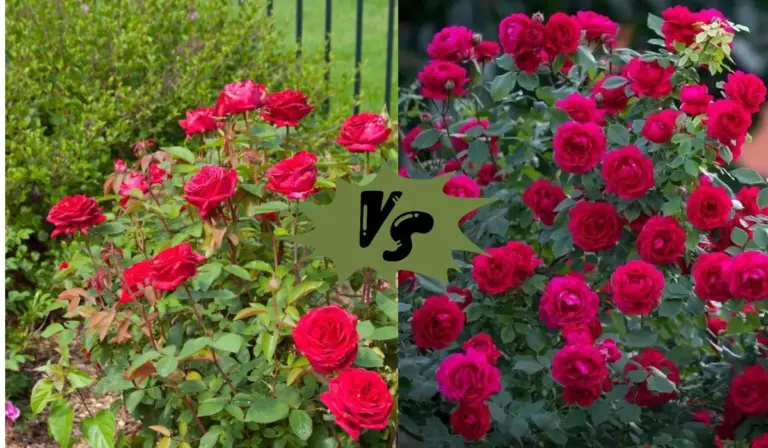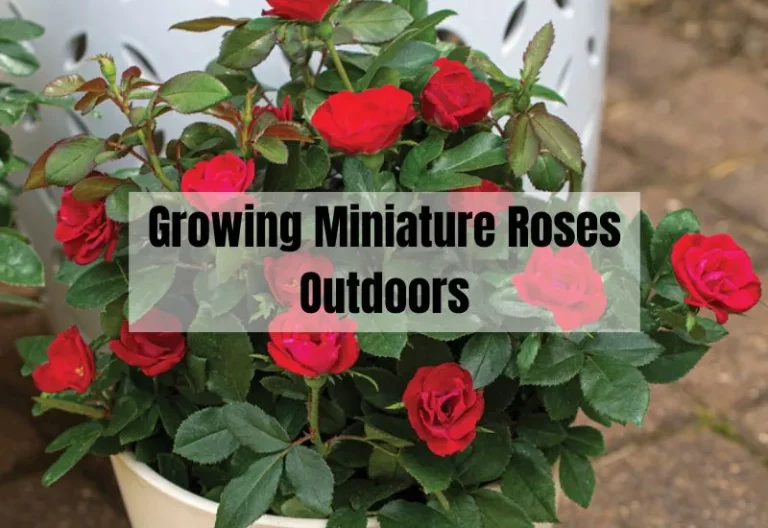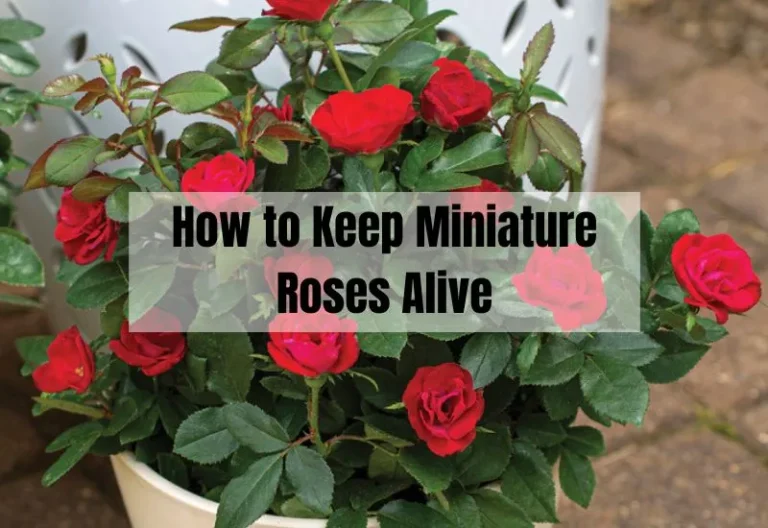Understanding Roundup’s Impact on Rose Bushes: Will It Kill Them?
From Louise: Passionate about gardening, I specialize in plant care and flower knowledge. I’m here to share my expertise and assist with your gardening queries. Feel free to ask any questions or seek advice on lawn care—I’ll respond within 24 hours!
Tired of weeds taking over your garden and concerned about your rose bushes? Many gardeners hesitate to use weed killers like Roundup on roses due to potential harm. But, can Roundup really kill rose bushes?
Yes, if not used correctly, Roundup can harm rose bushes. It’s a potent herbicide designed to eliminate various plants, including roses. Yet, used properly, Roundup effectively controls weeds without damaging roses. Understanding its safe usage is crucial for plant protection.
For those considering Roundup, understanding facts is vital. This article delves into whether Roundup can kill roses, suggests alternatives for weed control, and offers tips to shield roses from Roundup. Common queries about removing rose bushes are addressed along with effective elimination methods.
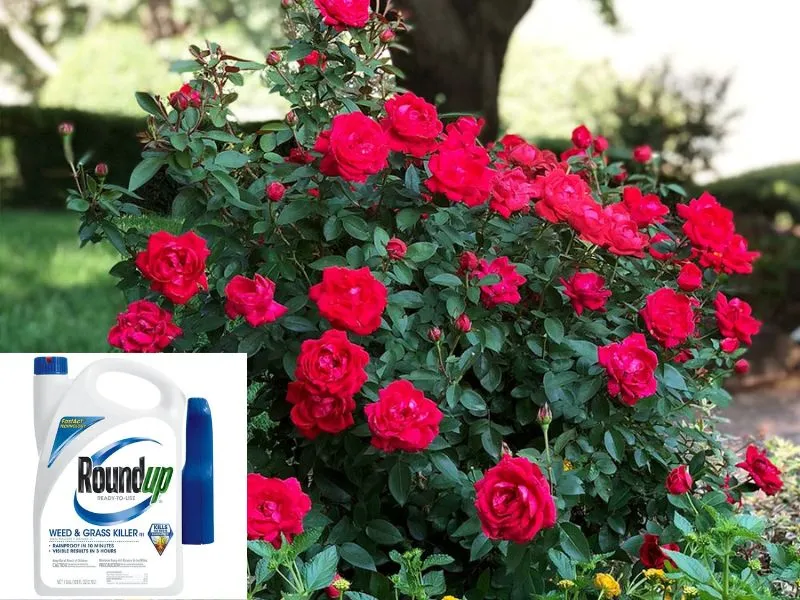
Will Roundup Kill Rose Bushes
Will Roundup kill rose bushes? Yes, Roundup will kill rose bushes. However, caution is necessary as Roundup can harm other nearby plants.
Roundup is a potent herbicide that kills the whole plant, including roots. It’s non-selective, affecting all plants it touches. To avoid harming other plants, follow these steps:
- Apply on a calm day to prevent drift.
- Use a barrier to shield neighboring plants.
- Follow label instructions; excessive use harms the environment.
Understanding Roundup and Its Effects
Roundup is a popular herbicide used to control weeds in gardens, lawns, and farms. It contains glyphosate, a broad-spectrum herbicide that works by inhibiting an enzyme essential for plant growth.
Glyphosate is absorbed by the leaves and stems of plants and transported to the roots, where it kills the entire plant.
While Roundup is effective in killing weeds, it can also harm other plants, including roses. Glyphosate is a non-selective herbicide, meaning it can kill any plant it comes in contact with. Even a small amount of overspray or drift can damage or kill roses.
The effects of Roundup on roses depend on several factors, including the concentration of glyphosate, the time of application, and the age and health of the plant. Roses that are young or stressed are more susceptible to damage than mature and healthy plants.
If Roundup is applied to roses, it can cause a range of symptoms, including yellowing and wilting of leaves, stunted growth, and death of the plant. These symptoms may appear within a few days or weeks of application, depending on the severity of the damage.
To avoid damaging your roses with Roundup, it’s important to follow the label instructions carefully. Use the recommended concentration and apply the herbicide only when the weather is calm and dry. Avoid spraying on windy days or when the temperature is above 85°F, as this can increase the risk of drift and vaporization.
In addition, it’s a good idea to protect your roses from overspray by covering them with plastic or cardboard. You can also use a shield or a spray bottle to apply the herbicide directly to the weeds, without touching the roses.
Overall, Roundup can be an effective tool for controlling weeds, but it should be used with caution around roses and other sensitive plants. By understanding how Roundup works and taking the necessary precautions, you can protect your roses and keep your garden looking beautiful.
Alternatives to Roundup for Weed Control

If you’re looking for alternatives to Roundup for weed control, there are several options available that are safer for your plants and the environment. Here are a few options to consider:
1. Mulching
Mulching is a great way to control weeds in your garden. By covering the soil with a layer of organic material, such as wood chips or straw, you can prevent weed seeds from germinating and growing.
Mulch also helps to retain moisture in the soil, which can be beneficial for your plants.
2. Hand Weeding
Hand weeding is another effective way to control weeds in your garden. While it can be time-consuming, it allows you to target individual weeds without harming your plants. To make hand weeding easier, try doing it after a rain or watering when the soil is moist.
3. Herbicidal Soap
Herbicidal soap is a non-toxic alternative to Roundup that can be used to control weeds.
It works by drying out the leaves of the weeds, causing them to wither and die. Herbicidal soap is safe for use around pets and wildlife, and it won’t harm your plants.
4. Vinegar
Vinegar is another non-toxic alternative to Roundup that can be used to control weeds. It works by lowering the pH of the soil, making it difficult for weeds to grow. To use vinegar as a weed killer, mix it with water and spray it directly on the weeds.
5. Corn Gluten Meal
Corn gluten meal is a natural herbicide that can be used to control weeds. It works by preventing weed seeds from germinating, making it a great option for use in the spring and fall.
Corn gluten meal is safe for use around pets and wildlife, and it can also be used as a fertilizer for your plants.
By using one or more of these alternatives to Roundup, you can control weeds in your garden without harming your plants or the environment. Try experimenting with different methods to find the one that works best for you.
Protecting Your Rose Bushes from Roundup
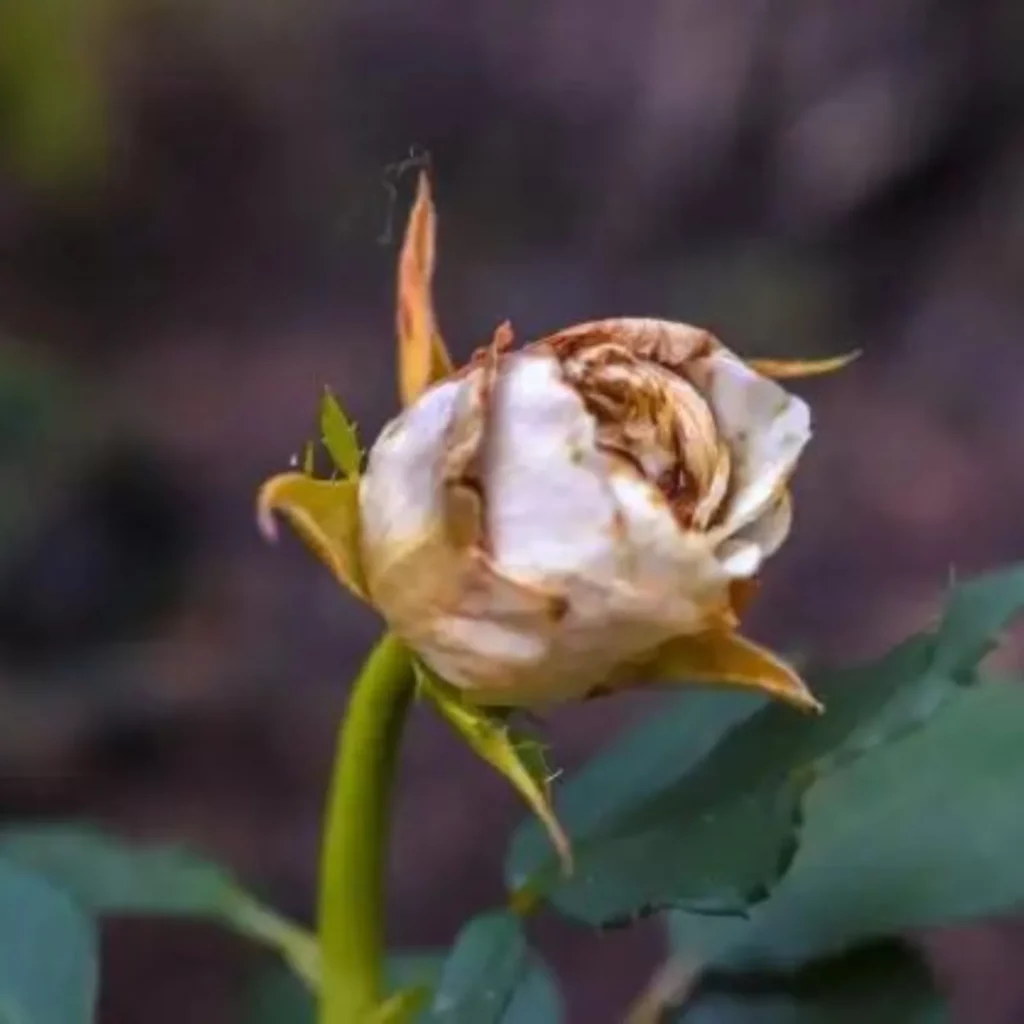
If you’re a rose gardener, you know how important it is to keep your plants healthy and thriving. One of the biggest threats to your roses is Roundup, a popular herbicide that can kill your plants if used improperly.
Here are some steps you can take to protect your rose bushes from Roundup:
- Use a physical barrier: One of the easiest ways to protect your roses from Roundup is to use a physical barrier. You can use plastic sheeting, cardboard, or even a tarp to cover your plants. This will prevent the herbicide from coming into contact with your roses and will keep them safe.
- Be careful when spraying: If you do decide to use Roundup, be very careful when spraying. Make sure you follow the instructions on the label and only spray the areas where you want to kill weeds. Do not spray directly on your rose bushes or any other plants you want to keep.
- Use a shield: You can also use a shield to protect your roses from Roundup. You can buy a shield that attaches to your sprayer and will prevent the herbicide from coming into contact with your plants. This is a great option if you have a lot of weeds to kill and don’t want to spend a lot of time manually pulling them.
- Use an alternative: If you’re really worried about Roundup, you can always use an alternative herbicide. There are many organic herbicides available that are safe for your roses and won’t harm the environment. Look for products that contain vinegar, citric acid, or other natural ingredients.
By following these steps, you can protect your rose bushes from Roundup and keep them healthy and thriving. Remember to always read the label and follow the instructions carefully when using any herbicide.
With a little bit of care and attention, your roses will continue to bloom beautifully for years to come.
What are the Most Effective Ways to Kill Rose Bushes?
If you’re looking to get rid of a stubborn rose bush, you may be wondering what the most effective methods are. Here are some options to consider:
Chemical Control
Chemical control involves using herbicides to kill the rose bush. Glyphosate is an effective ingredient for killing rose bushes, but it may cause various health issues, so it may be safest to avoid it.
Instead, consider using a systemic herbicide such as Roundup, which is absorbed by the plant and kills it from the roots up. Keep in mind that systemic herbicides can also harm other plants in the area, so use with caution.
Mechanical Destruction
Mechanical destruction involves physically cutting or pulling out the rose bush. This method is best used on small rose bushes, as larger bushes may require heavy machinery to remove.
Use pruning shears or loppers to cut the rose bush as close to the ground as possible. You can also dig up the roots with a shovel or hoe.
Burial
Burial involves covering the rose bush with soil or mulch to deprive it of sunlight and nutrients. This method is best used on smaller rose bushes.
Dig a hole around the base of the rose bush, and bury it with soil or mulch. Keep in mind that this method may not be effective if the rose bush has deep roots.
When deciding on the best method for killing a rose bush, consider the size of the bush, the location, and the surrounding plants. Always follow the instructions on herbicides carefully and use protective gear when handling them.
With a little patience and persistence, you can successfully remove a stubborn rose bush from your garden.
Frequently Asked Questions (FAQs)
Can pruning kill a rose bush?
Pruning is an important part of maintaining a healthy rose bush, but it should be done with care. While pruning can help stimulate new growth and promote healthy blooms, it can also damage or kill a rose bush if done incorrectly.
It is important to use sharp, clean pruning shears and to make cuts at a 45-degree angle, just above a healthy bud. Avoid cutting too close to the bud, as this can damage the new growth. If you are unsure about how to prune your rose bush, it may be best to seek advice from a professional.
How can I remove a rose bush?
If you need to remove a rose bush, there are several methods you can use. One option is to dig up the entire plant, including the roots. This can be a difficult and time-consuming process, but it is the most effective way to ensure that the rose bush does not grow back.
Another option is to cut the rose bush down to the ground and apply an herbicide to the remaining stump. This can be a faster and easier method, but it may not be as effective at preventing regrowth.
What are some common diseases that affect rose bushes?
Rose bushes can be susceptible to a variety of diseases, including black spot, powdery mildew, and rust. These diseases can cause damage to the leaves, stems, and flowers of the plant, and can even lead to the death of the rose bush if left untreated.
To prevent the spread of disease, it is important to maintain good hygiene practices, such as cleaning your pruning shears between cuts and removing any infected plant material. There are also a variety of fungicides available that can help control the spread of disease.
What are some effective methods for getting rid of pests on roses?
Rose bushes can attract a variety of pests, including aphids, spider mites, and thrips. These pests can cause damage to the leaves and flowers of the plant, and can even lead to the death of the rose bush if left untreated.
There are several methods for controlling pests on roses, including using insecticidal soaps or oils, introducing beneficial insects like ladybugs or lacewings, and removing any infected plant material.
It is important to identify the pest and choose the appropriate method of control, as some methods may be harmful to beneficial insects or other plants in your garden.
Is there a way to kill rose bushes permanently?
If you need to kill a rose bush permanently, there are several methods you can use. One option is to cut the rose bush down to the ground and apply an herbicide to the remaining stump. This can be an effective method, but it may take several applications to completely kill the rose bush.
Another option is to dig up the entire plant, including the roots, and dispose of it. This can be a time-consuming process, but it is the most effective way to ensure that the rose bush does not grow back.
It is important to follow all safety precautions when using herbicides, and to dispose of any plant material properly to prevent the spread of disease or pests.
Conclusion
In conclusion, Roundup can effectively eliminate rose bushes, but use it cautiously and as a last resort. Alternative methods for removing unwanted rose bushes include repeated crown cutting, root ball excavation, and starvation.
When employing Roundup, follow instructions meticulously and wear protective gear, such as gloves and a mask. Ensure the correct Roundup concentration based on the rose bush’s size; inadequate amounts are ineffective, while excessive amounts can harm nearby plants.
Remember, Roundup is non-selective and damages any contacted plant. Apply it cautiously around desired plants when targeting rose bushes near them.
Ideally, prevent rose bushes by maintaining your garden and promptly removing unwanted plants. If using Roundup becomes necessary, do so carefully and responsibly.

